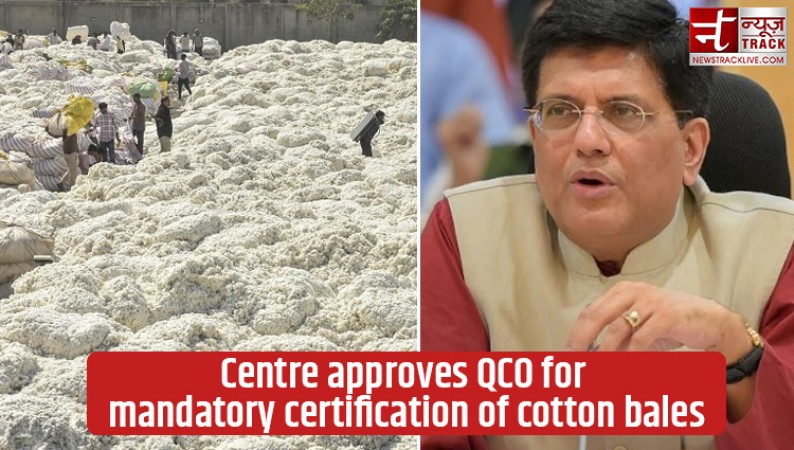
NEW DELHI: The fifth interactive meeting with the Textile Advisory Group (TAG) to review the status of initiatives for the cotton value chain was held in New Delhi, and it was presided over by the honourable Union Minister for Textiles, Commerce & Industry, Consumer Affairs, and Food & Public Distribution, Shri Piyush Goyal.
In order to increase the supply of high-quality cotton to the textile sector, he issued the Quality Control Order (QCO) for the mandatory certification of cotton bales manufactured in accordance with specification No. IS12171: 2019-Cotton Bales.
The Union Minister Piyush Goyal pointed out that quality of Indian cotton fibre is beneficial for farmers and industry both. He emphasised that Indian Cotton branding will significantly improve the entire cotton value chain, from growers to end customers. On December 15, 2022, the CCI and TEXPROCIL signed a memorandum of understanding (MOU) to encourage the trade and industry to work on the principle of self-regulation by taking full ownership of the traceability, certification, and branding of "KASTURI Cotton India" with the project's 2022–2024–25 target period. The task of Traceability and Certification will start during the current cotton season with the formation of the Steering Committee and Apex Committee.
A comprehensive plan has been approved to increase cotton productivity by focusing on the technologies of HDPS, Closer Spacing, and ELS. It is built on a cluster-based and value-chain approach to public-private partnerships. This pilot plan will be put into effect from 2023 to 2024 and was created by the Central Institute for Cotton Research (CICR) under the direction of the Ministry of Agriculture and Farmers Welfare.
Shri Goyal stressed the necessity to strengthen the testing facilities, DNA testing, and traceability in order to meet KASTURI standards. He promised that through BIS and TRAs, sufficient modern testing facilities will be developed (Textile Research Associations). By cooperating with the Ministry of Textiles, BIS will ensure the establishment of a DNA testing laboratory for the textile industry.
Also, the Hon. Minister urged the textile industry to concentrate on quality and traceability along the entire textile value chain.
TAG Chairman Shri Ashok Kotak and Smt. Darshana V. Jardosh, the Hon'ble Minister of State for Textiles and Railways, also presided over the TAG meeting.
APEDA and BIS representatives, other senior officials from associated Ministries, stakeholders in the cotton value chain, and Shri Abhilaksh Likhi, additional secretary for the ministry of agriculture and farmers welfare, were also present at the meeting.
The Ministry's attempts to create a separate HSN code for ELS cotton were detailed by Smt. Rachna Shah, Secretary for Textiles, in order to make segregated statistical data for ELS cotton available to calibrate policy decisions going forward.
Goyal asks industry to explore ways to raise big export targets
Centre to offload 20 lakh tonnes more wheat in OMSS to cut prices